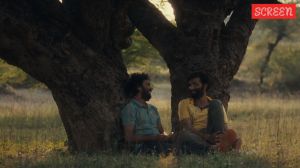Steps to prevent mishaps at Sukhna Lake
CHANDIGARH, June 18: In order to avoid mishaps at the Sukhna Lake, the UT Administration is considering several measures. Over 25 persons lo...

CHANDIGARH, June 18: In order to avoid mishaps at the Sukhna Lake, the UT Administration is considering several measures. Over 25 persons lost their lives at the Lake over the past five years, either intentionally or accidently — the last being in mid-May when three teenagers drowned in the Sukhna’s wacky waters.
The May mishap occurred reportedly because there was only one guard at the lake and there was no way he could be promptly informed of the incident.It is reliably learnt that the administration is planning to launch an information, education and awareness campaign.
The Engineering Department of the Administration has already procured imported binoculars which will be issued to the Lake staff who will be posted at critical points round the clock. They will keep a watch on people and intervene in the event of any suspicious activity. Trained divers will be on patrol duty 24 hours. They will be told to be especially alert during the period between examinations and the declaration of results.
The control room at the boat club will also function round the clock and it will be equipped with wireless and telephone sets. A team of divers with emergency rescue engine boat will also be present. Lifeguards have been alerted both in CITCO and sports department. About eight to ten signboards have been erected at various places prohibiting the visitors from bathing or swimming at the Lake. The Administration will ensure that the boats that are used either for sporting activities or otherwise, are "fit for use" and they will be inspected at regular intervals.
It also plans to have life-saving kits in each boat. All those using the boats will be briefed about its use and the instructions will also be pasted inside the boats. An ambulance has also been stationed at the Lake.Besides, the Administration also proposes to publish a booklet providing information on as to what can be done in case one is drowning in the Lake.
The book that has colourful illustrations carries useful instructions like what one can do in any eventuality while swimming, boating or when one falls into the lake, or while rescuing the drowning person. It remains to be seen how much this information will cost to the people. Many feel that only if it is available free of cost or at a affordable price, it can be useful.
Photos


- 01
- 02
- 03
- 04
- 05





























